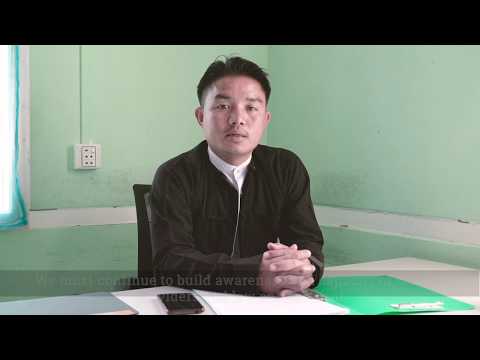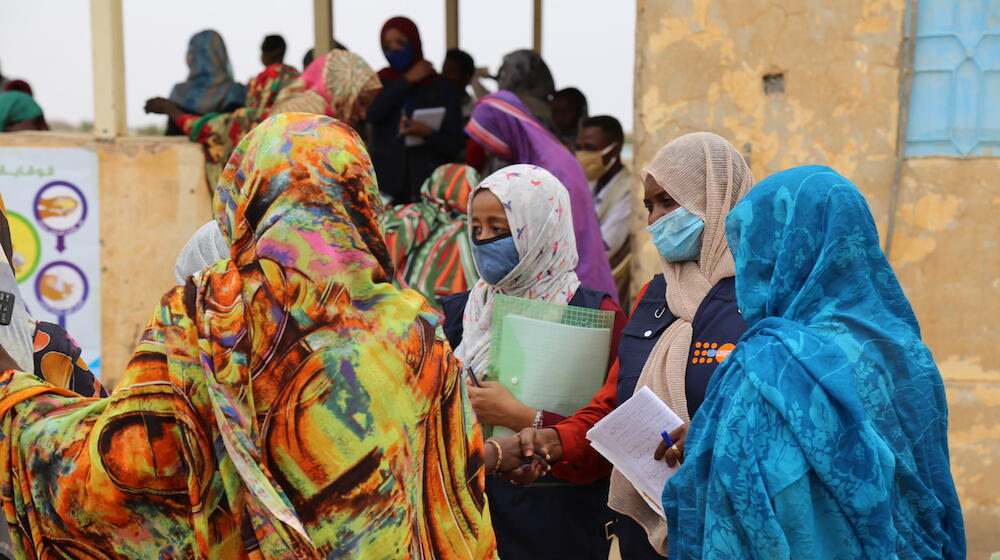KHARTOUM, Sudan – “I personally experienced female genital mutilation and its harmful effects. I will not allow my daughters to be exposed to this,” said Zuha from White Nile state, in southern Sudan.
Zuha was married in 2009 and moved with her new husband, Hashem, to the capital Khartoum. Female genital mutilation had been widely practised in her village, but after giving birth to her first daughter, members of a local community protection network in Khartoum came to visit her.
She was surprised to learn that the daughters of most of her neighbours were not cut. “I didn’t know that it was possible not to cut my daughter,” she told UNFPA.
Almost 90 per cent of women and girls aged 15 to 49 in Sudan have undergone some form of female genital mutilation. Although the prevalence is dropping thanks to its criminalization in 2020 and widespread advocacy and information efforts, many young girls remain at risk of being subjected to this act of gender-based violence and grievous violation of human rights.
After attending awareness-raising sessions with the UNFPA-supported network, Zuha was determined to not subject her daughter to the practice. To help convince Hashem, a group of neighbours invited him over for tea and discussed the risks and damage caused by female genital mutilation, and why he should not cut his daughter. They eventually encouraged him by sharing their own experiences of protecting their daughters.
“My husband came back and asked me if it was true that female genital mutilation is really that harmful. He was afraid for our daughter's health.”
Zuha and Hashem decided not to cut their daughter, and to resist all social pressure imposed on them by their families. They now have two healthy daughters, and have joined the local community protection network to raise awareness and advocate against the practice.
Changing harmful norms, starting at school
“I will continue my education, I will not get married until I finish my studies. I will not allow my daughters to be cut.” Zahraa, 12, is from Town Three in Wad Al-Mahi in Sudan’s Blue Nile state.
Town Three is home to people who were displaced decades ago following construction work on the nearby Roseires dam. Many in the town came from villages that did not initially practise female genital mutilation, but since their arrival had adopted it as a means of conforming with their host community’s social norms.
UNFPA worked with the Y-Peer youth network to establish girls’ clubs in local schools where young people could talk about the practice and learn how it can be harmful for girls and women. At first, the initiative faced resistance from parents who didn’t want their children speaking out against female genital mutilation, but by engaging teachers and religious leaders in advocacy efforts, the parents eventually came around to the idea. Around 20 students were selected and trained to lead the club’s activities, including group discussions and interactive theatre.
Zahraa’s community now publicly supports efforts to abandon female genital mutilation and has declared itself free of the harmful practice. The school clubs proved so popular that people living in the area and further across the region, many of them women, asked for other similar programmes to be developed, extending the call to youth-led work plans, awareness of gender inequality and calling for better health and safety precautions for young people.

Anna, 63, was among them. “I am proud to see that other women now understand the harm this practice causes their daughters. I’m happy to see them speaking out against it,” she said.
United to protect women and girls
Over 200 million women and girls alive today have experienced female genital mutilation. In 2023, an estimated 4.3 million girls globally are likely to be subjected to the practice, and UNFPA estimates show COVID-19-related disruptions to programming could put a further 2 million at risk over the next decade, unless concerted and urgent action is taken.
Thanks to funding from the United Kingdom, UNFPA is working with UNICEF and the World Health Organization under the Sudan Free of Female Genital Mutilation joint programme to end harmful practices. UNFPA and UNICEF lead the Joint Programme on the Elimination of Female Genital Mutilation, the largest global initiative to accelerate bringing an end to the practice.
The programme currently focuses on 17 countries as well as supporting regional and global initiatives. As of 2022, UNFPA supported 89 communities in Sudan to publicly declare abandonment of female genital mutilation, while 547 communities have been reached and supported to make similar declarations.



